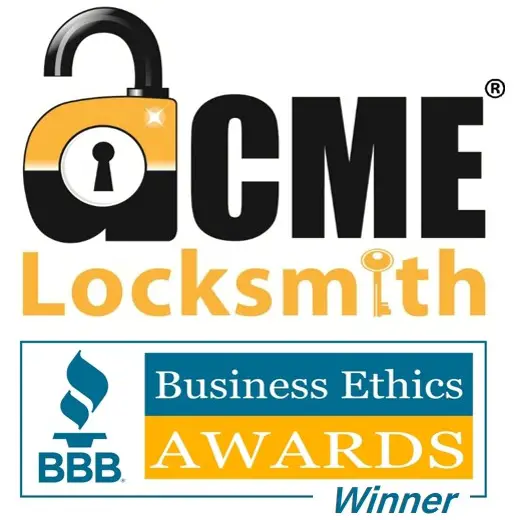Last Updated on July 22, 2024
How Long it Takes | Background Screenings | Locksmith Training | Apprentice | Tools | State Certifications

Interested in a career as a locksmith? This comprehensive guide covers everything you need to know about becoming a licensed locksmith for your state. Whether you’re starting from scratch or looking to enhance your skills in the locksmith industry, we provide all the tools, training, and tips to help you succeed.
As a Phoenix locksmith company, we wrote this article to help you understand all of the steps needed to begin a career as a locksmith.
Requirements To Work as a Locksmith
- Pass background screenings
- Obtain locksmithing training
- Apprentice with a lock company
- Purchase the proper tools and equipment
- Obtain state certification (where required)
What Does a Locksmith Do?
A common misconception is that locksmiths only make keys and unlock cars, homes, and businesses.
The reality is that locksmiths do much more than this. If it takes a key or opens / closes a door, locksmiths work on it.
Locksmith work on all commercial and residential door hardware, smart locks, access control systems, automotive keys, remotes & FOBS; to ensure that clients are safe and secure.
Timeframe to Proficiency as a Locksmith
To be a locksmith you need experience! But how much do you need?
We have found those entering the locksmith trade can operate as a locksmith on their own, without supervision, and handle the majority of work by their second year in the trade. By year four, most locksmiths will have the necessary locksmithing skills to operate their own business (though business skills may need to be developed).
Apprentice

You will be “apprenticing” for 6 months to 2 years. At about 6 months you will be able to handle the majority of residential locks and can do light commercial work.
Automotive Skills
An additional 6-12 months of experience will get you to the point where you can handle most automotive locksmith tasks, if your training is focused entirely on the automotive skills. If it is not, it will take longer.
Mid-Level Locksmith
We consider locksmiths with 3-6 years experience mid-level locksmiths. Productive employees that have the majority of locksmithing skills but lack some of the more complex skills associated with, primarily; safe opening and high-end commercial work.
Senior Locksmith
After 6 years at ACME Locksmith, we consider you to be a senior locksmith even though you may lack some of the very top-level skills in a particular area.
Pass a Background Check
To be a locksmith, you must be able to pass background and drug screening. Most companies will run both before hiring anyone for an entry-level locksmith position, even when it’s not required by the state.
Locksmiths are trained to get into homes, businesses and cars. To train someone who has not completed those checks is irresponsible to the community.
Background checks and drug screenings are a standard part of the state locksmith licensing process. At last count, 14 states currently require a background check as part of their state locksmith license requirements.
Obtain Locksmith Training

There is no formal educational requirement to be a locksmith (think diploma), but most business owners would prefer someone who has completed their high-school diploma or equivalency. We’ve hired locksmiths with experience that had neither, but we wouldn’t hire an apprentice without one of those.
Obtaining training through a locksmith training or certification program is not necessarily required to be a locksmith. But what it will do is give you the edge to landing that first locksmith job as an apprentice because it demonstrate that you have a commitment to the trade.
There are a number of ways to obtain training.
Mail- in Courses
Training is conducted via video and parts are mailed to the trainee to be worked on and mailed back to be graded.
This is the least valuable training as you get the least amount of exposure to the locks and keys you will eventually be working on. But it is an affordable way to try it out, see if you have the aptitude for it and enjoy it. It will also demonstrate that you have a high level of commitment to the lock profession to those you interview with.
Training Classes
Some companies and schools focus exclusively on training in a traditional classroom style setting.
If you operate best in a well-structured type of program these locksmith courses are the ones to take. The Associated Locksmiths of America has a list of schools that offer their training certifications. Lockmasters is one training center on that list that we have used in the past to train our locksmiths on some specialty skills with good success.
Locksmith Training in a Lock Shop
There are locksmith companies, like ours in Phoenix, AZ that offer training in a non-classroom environment. Our locksmith training is one-on-one in a functioning lock shop. We consider this the best training environment for hands-on skills working on real customer issues.
Working in a shop provides a higher level of exposure to real-world needs. Our Basic Residential Lock Training program is 20 hours long. We offer an Introductory Automotive Locksmith training program as well.
Be Realistic
No matter which path you decide to take to get locksmith training you need to know that you will not be a fully trained locksmith when training is done.
You’ll understand the basics and premises, but it takes years of exposure to various locks and locking systems to really be considered proficient.
Locksmith training is something you should do in order to gain a leg up over the competition to get that entry-level locksmith apprenticeship.
Locksmith Apprenticeships
The training will help land you the first job, but it may not be necessary. Locksmith companies know that basic training is not enough and that they will have to invest in you to get your locksmith career moving forward.
To gain all of the skills you need to be a locksmith you will need to apprentice with a company.
Apprenticeship requirements differ by company and by state. States with licensing will have strict apprenticeship requirements while those without licensing will likely have a more informal process.
Tools Needed to be a Locksmith
We have a detailed post on Tools Locksmiths Use.
Locksmith Licensing Requirements by State
The states that currently require locksmiths to be licensed are Alabama, California, Connecticut, Illinois, Louisiana, Maryland, Nebraska, Nevada, New Jersey, North Carolina, Oklahoma, Oregon, Texas and Virginia.
Most of the licenses required are to operate your own locksmith business. Licensing is not usually required to work for a locksmith company. There are a few exceptions noted below.
Below is a list of resources that specify how to become a locksmith for the states that require licensing. Though I’ve included a summary, please check with your state’s licensing board are requirements do change from time to time.
Many states do not require specific locksmith licensing and instead put locksmiths under their general contractor license guidelines, such as my state, Arizona. Below are links to the licensing parties for states that require locksmiths to be licensed.
ALABAMA Electronic Security Board
To obtain an individual or corporate locksmith license in Alabama there are insurance requirements, a background check and a competency examination.
CALIFORNIA Department of Consumer Affairs/Bureau of Security & Investigative Services
California requires a locksmith license to be employed as a locksmith, as well as to operate your own business. Both will require a background check. The corporate licensee also has a 4-year experience requirement.
CONNECTICUT Department of Consumer Protection
To operate as a locksmith in Connecticut you are required to register your business, and update the registration every other year. There is also a background check, but no specific skill or experience requirements.
ILLINOIS Division of Professional Regulation
To be a Locksmith in Illinois, there are age requirements, a 20 hour training requirement and you must pass both a background check and a locksmith competency examination.
LOUISIANA State Fire Marshal’s Office
Louisiana requires that locksmiths pass a series of certification courses. They also require that apprentices get a license.
NEW JERSEY Division of Consumer Affairs
New Jersey requires 3 years of locksmith experience, a clean background for the past 10 years, and the passing of a competency examination.
NEW YORK CITY Department of Consumer Affairs
In New York, you must be able to show proficiency as a locksmith either through letters of recommendation or coursework. Licensing is also required to work for any locksmith company.
NEVADA
In Nevada, you submit an application to your local Sheriff’s office which will perform a background check.
NORTH CAROLINA Locksmith Licensing Board
In addition to the background check, to be a locksmith in North Carolina you need to pass a locksmith licensing examination.
OKLAHOMA State Department of Health
Locksmith in Oklahoma are licensed under the Department of Public Safety. There is a licensing for both individuals and companies. Background checks and exams are required.
OREGON Department of Commerce & Insurance
Oregon requires locksmith certification for all locksmiths and licensing for businesses.
TENNESSEE Department of Commerce & Insurance
Tennessee has repealed its locksmith licensing requirements.
TEXAS Department of Public Safety Security Board
Texas Exam Info
Texas requires individuals and corporations to be licensed. Licensing comes with experience or coursework requirements, background checks, insurance requirements and competency tests.
VIRGINIA Department of Criminal Justice Services
Virginia requires everyone in the locksmith trade to complete an 18-hour training certificate and pass a background check.

Leave a Reply